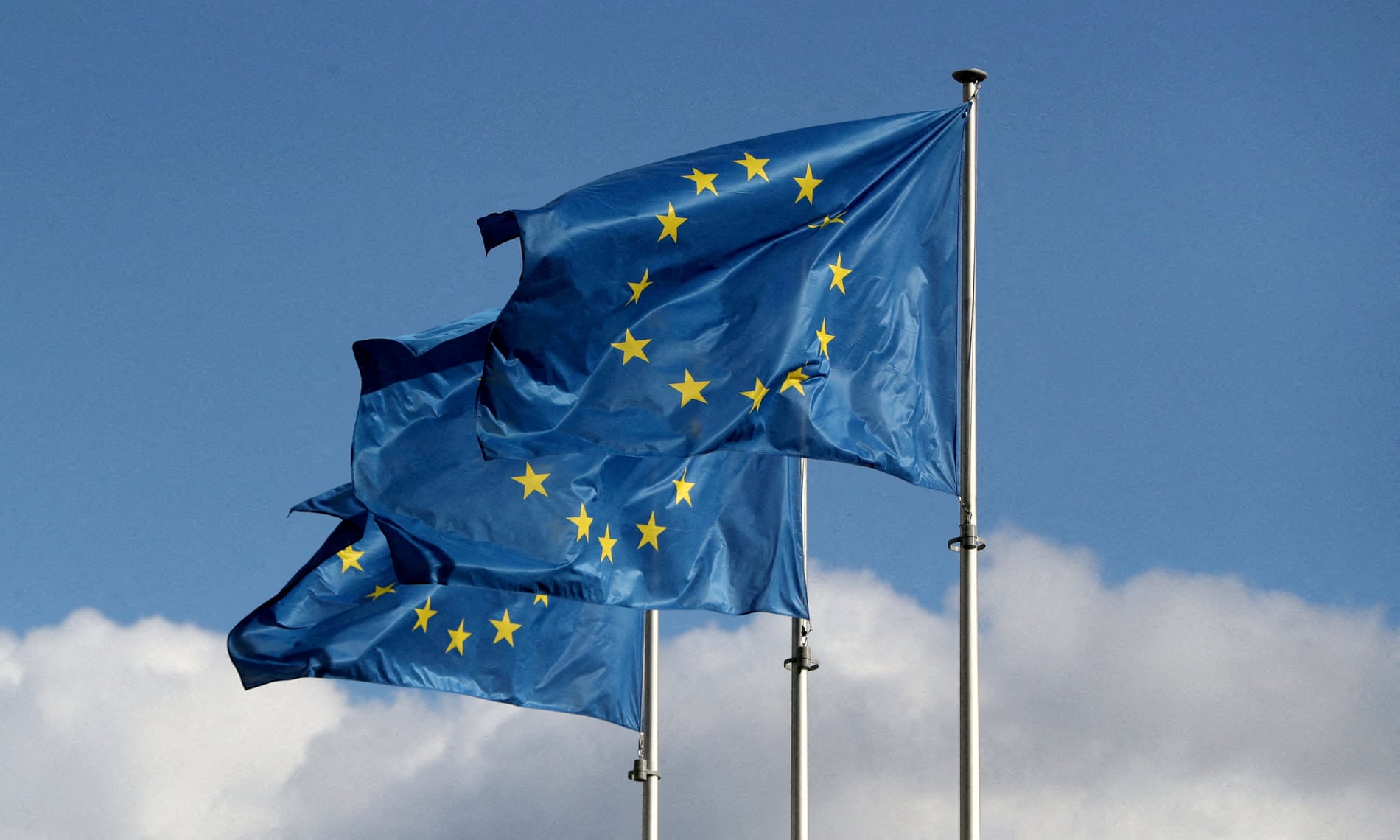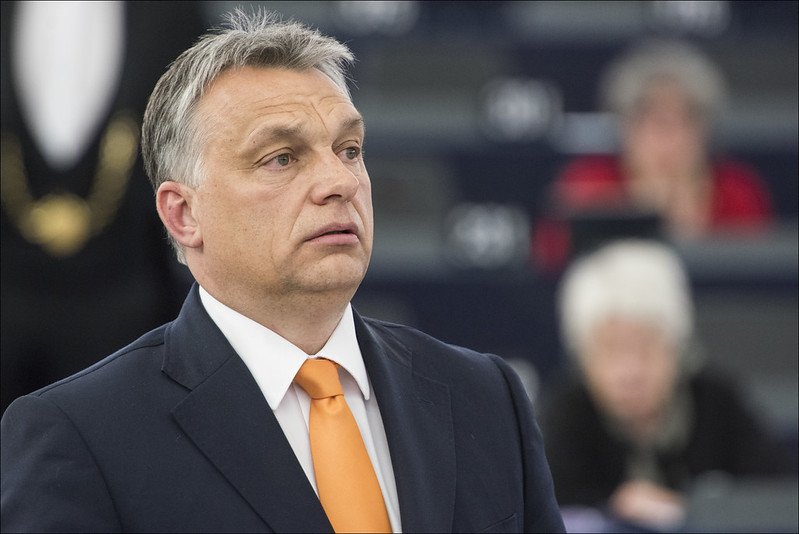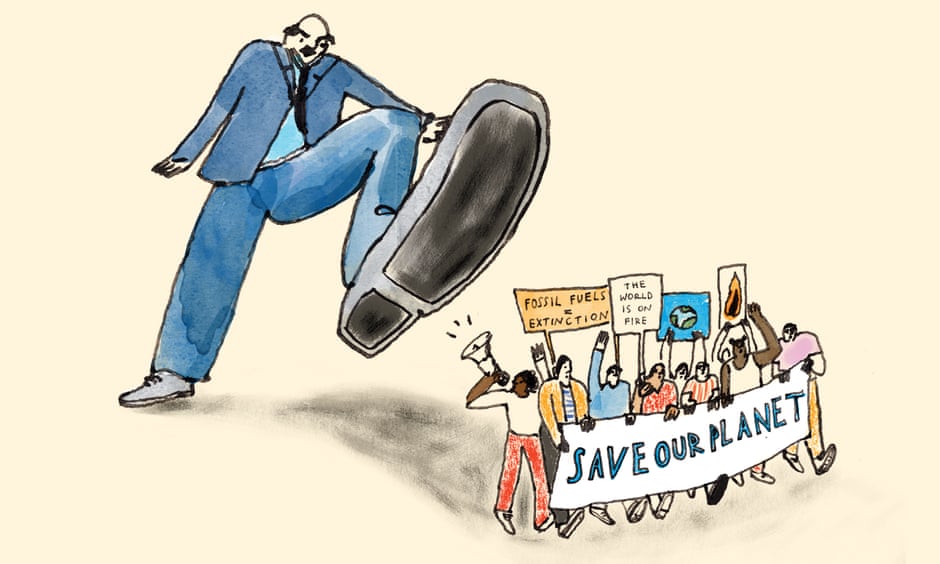Europe is heading for perilous waters, and its leaders are dozing at the tiller
The Guardian
Ukraine needs more help, the far right is on the rise and the Middle East crisis gets worse. Where is the European Union’s vision? (...)
(Tekst loopt door onder de foto.)

European Union flags fly outside the EU Commission headquarters in Brussels. Photograph: Yves Herman/Reuters.
The way it’s going, 2024 could turn into a nightmare for the 27-country bloc – an all-time annus horribilis. A daunting slew of international and internal challenges is coming to a head. Is the EU ready to meet them? Definitely not.
Take the crisis in the Red Sea. Iran-backed Houthi militants have been attacking shipping there since the Israel-Hamas war began. (...)
The EU has an important stake in this fight. About 40% of its Asia and Middle East trade moves via Suez. But only the Netherlands provided hands-on assistance. (...)
Snoozing at the tiller, Europe is again failing to pair its self-interest and aspirations as a global actor with timely, concrete, joined-up action.
The Gaza war has exploded another illusion ahead of this week’s pivotal EU summit. (...) As Israel’s largest trading partner, they think the EU has leverage. All support a two-state solution. But when Josep Borrell, EU foreign policy chief, outlined a 10-point peace plan for Palestine last week, his VIP guest, Israel Katz, Israel’s foreign minister, ignored it. (...)
Europe’s bottomless capacity for punching below its weight is damaging Ukraine, where two years on from its invasion, Russia appears to be slowly gaining the upper hand. (...)
The failure of some EU countries, notably France, to supply more and better arms, as US deliveries dry up, is also harming Ukraine’s chances – and consequentially, Europe’s hopes of defending its borders from future Russian aggression. That’s especially pertinent given Trump’s prospective return to the White House a year from now. (...)
Trump’s resurrection “would endanger European interests but Europe is not investing in mitigating the risks.” (...)
[T]he geopolitical dangers facing the EU in 2024 are global – and exacerbated by the dithering of its wealthiest member. Germany’s chancellor, Olaf Scholz, “is giving no political or strategic leadership to a Europe that is ill-prepared for a possible rupture of the transatlantic relationship.” (...)
“Similarly, neither Germany nor Europe is prepared to withstand the growing influence of regimes that challenge the traditional prominence of the west” – a reference to China, a big trade partner and bigger potential threat. (...)
Germany is also a flashpoint in the main internal political challenge confronting the EU – the rise of the far right. (...)
New polling by the European Council on Foreign Relations suggests populist “anti-European” parties, principally of the right, will make large gains in EU and national elections this year. Migration, broken budgets, energy and climate are other explosive common denominator issues. (...)
Can the EU survive a dangerous, defining year? It will probably muddle through. But the sort of strategic leadership and vision offered by Jacques Delors, the legendary Eurocrat who died last month, is evidently lacking – and urgently required. (...)
Tags: #europa #european_union #gaza #israel #palestine #palestinians #houthi #red_sea #germany #france #china #ukraine #russia #putin #far_right #migration #climate #climate_crisis #climate_change #trump #nato #borrell


